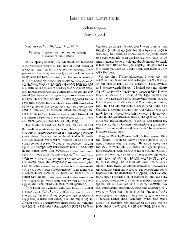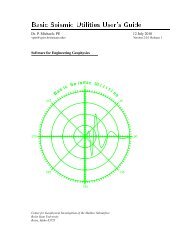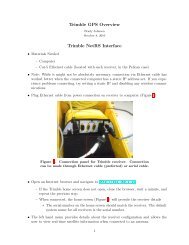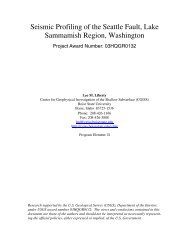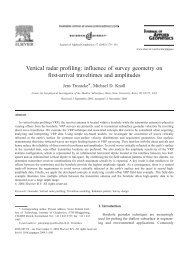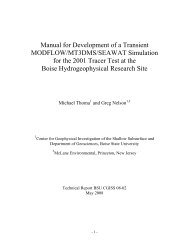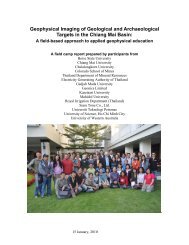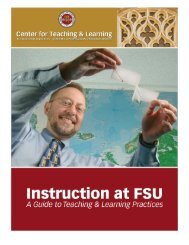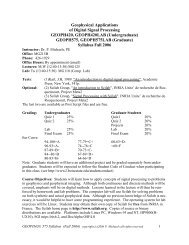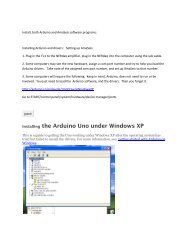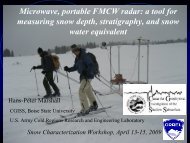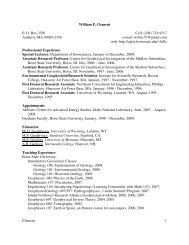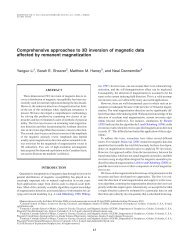IAGC LAND GEOPHYSICAL SAFETY MANUAL Edition 9 ... - CGISS
IAGC LAND GEOPHYSICAL SAFETY MANUAL Edition 9 ... - CGISS
IAGC LAND GEOPHYSICAL SAFETY MANUAL Edition 9 ... - CGISS
- No tags were found...
Create successful ePaper yourself
Turn your PDF publications into a flip-book with our unique Google optimized e-Paper software.
dry (temperatures below 14°F) should be at hand.5) The efficient use of clothing requires observation of the following:a) Keep clothing Cleanb) Avoid Overheating.c) Wear clothing Loose and in layers.d) Keep clothing DryRemember C-O-L-D to keep warm in winter.6) Clean clothes not only provide for sanitation and comfort but, more importantly, theyprovide efficient insulation.7) When the temperature rises:a) If indoors, wear a minimum of clothing and don't overheat the shelter.b) If outdoors or when hard work is being performed, adjust clothing accordinglyc) It is better to be a little cold than too warm in order to promote maximumeffectiveness of body heat production.8) During severe wind-chill conditions, wear a cold-weather mask or wool scarf.Remove face protectors at intervals in order to check for frostbite.9) C-O-L-D applies to hand and footwear, just as it does to clothes.10) Insulated footwear with wool, not cotton, socks are preferred to prevent frostbite.11) Never touch cold metal with bare hands.3.17.3 Foods and LiquidsBalanced meals and adequate liquid intake are essential to body heat production andthe prevention of dehydration.1) Eat a nutritional, balanced diet for essential body heat production.2) While in base camp, eat regular balanced meals as instructed, particularly in themorning and evening before and after a hard day’s work. A complex carbohydratediet is preferable to a high protein, high sugar, or high fat diet.3) Maintain normal liquid intake.a) Dehydration (loss or deprivation of water) is as prevalent in cold regions as it is inhot-dry areas.b) Dehydration should be avoided at all costs by consuming sufficient additionalliquids to offset losses caused by additional exertion in order to perform all tasksin cold weather.c) Warm liquids (hot soup or tea) are preferable since they do not have to bewarmed by the body after consumption.d) Eat cold food only as a matter of necessity. Avoid eating snow if at all possible. Itwill deplete body heat.Page 59 of 136



